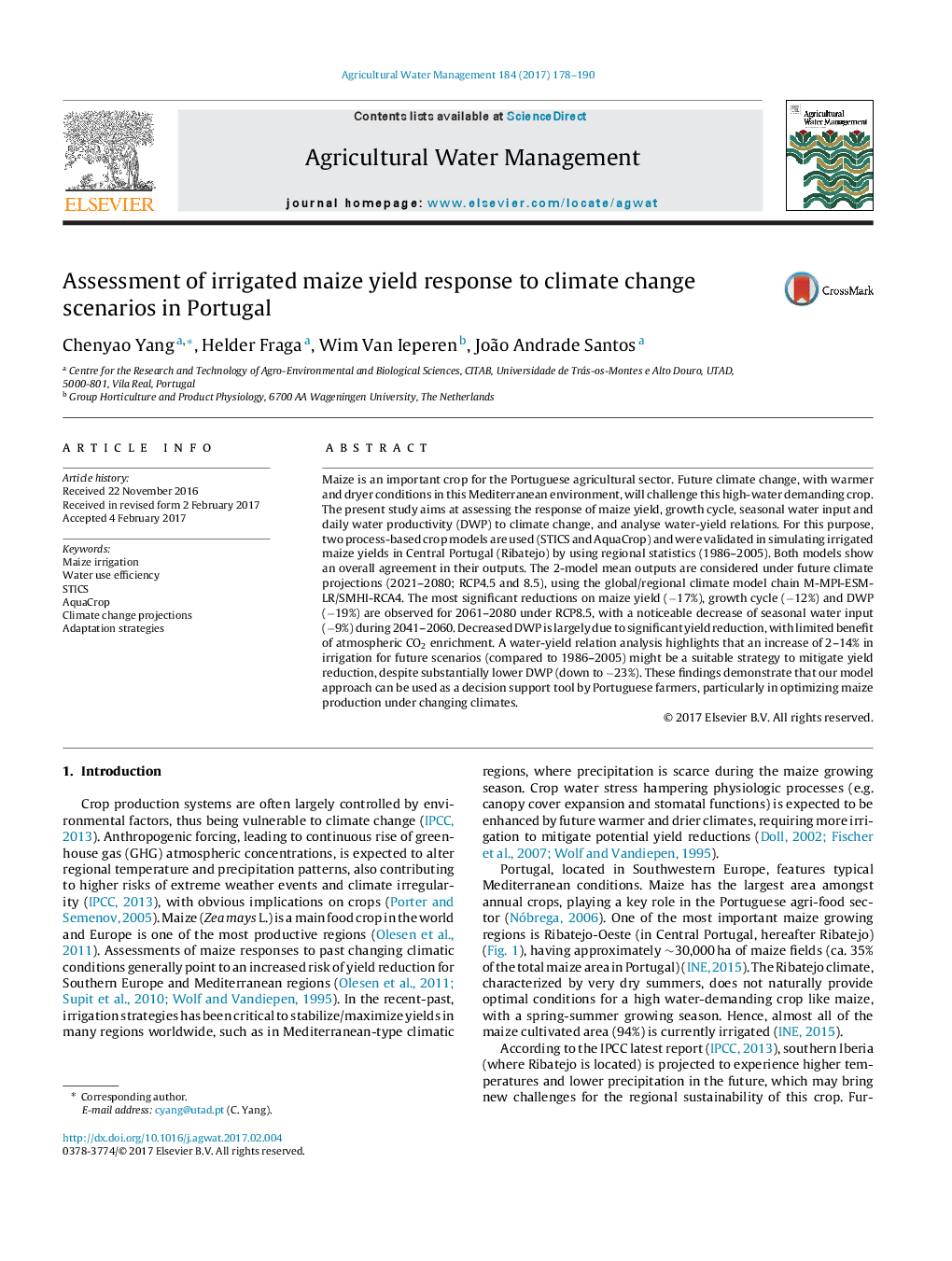ترجمه فارسی عنوان مقاله
ارزیابی پاسخ عملکرد ذرت آبی به سناریوهای تغییر آب و هوا در پرتغال
عنوان انگلیسی
Assessment of irrigated maize yield response to climate change scenarios in Portugal
| کد مقاله | سال انتشار | تعداد صفحات مقاله انگلیسی |
|---|---|---|
| 98874 | 2017 | 13 صفحه PDF |
منبع

Publisher : Elsevier - Science Direct (الزویر - ساینس دایرکت)
Journal : Agricultural Water Management, Volume 184, April 2017, Pages 178-190

